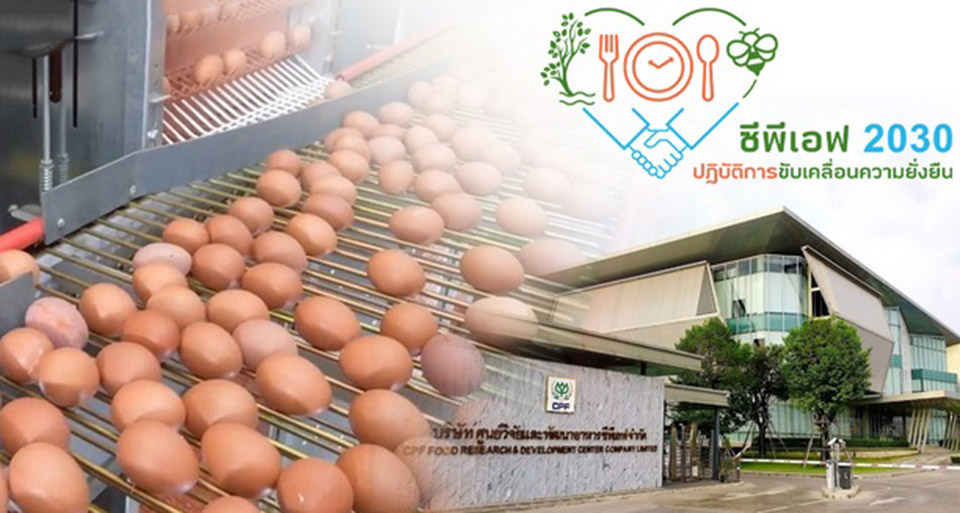
Charoen Pokphand Foods Public Company Limited (CPF) is taking decisive action to address food loss and waste sustainably. As part of its “CPF 2030 Sustainability in Action Strategy,” CPF is prioritizing efficient resource utilization and waste management throughout its value chain.
CPF said it aims to achieve zero waste to landfill and incineration, aligning with the United Nations’ Sustainable Development Goals.
CPF’s circular economy approach supports sustainable food production and consumption while mitigating climate change impacts. The company has implemented initiatives to improve food loss management and reduce waste. For example, the smart egg conveyor system project minimizes egg damage during transportation and sorting, resulting in over 1 million fewer damaged eggs in 2022. CPF plans to expand this system across its egg complexes nationwide.
CPF also maximizes the value of animal parts by selling them as fresh or processed foods. Additionally, the company utilizes damaged animal innards, feathers, and eggs as feed raw materials, reducing waste from production lines. Waste from production processes is transformed into value, such as using biogas systems to treat wastewater and produce energy. CPF also produces biodiesel from used vegetable oil.
Through collaborations with the Scholars of Sustenance Foundation (SOS) and GEPP Sa-Ard Company (GEPP), CPF has made significant progress in reducing surplus food. Their Circular Meal program has provided nutritious meals to vulnerable groups while managing post-consumer plastic packaging. The program has already delivered over 130,000 meals, reduced food waste by 31.19 tons, and mitigated greenhouse gas emissions by 23.84 tons of CO2e. (NNT)





